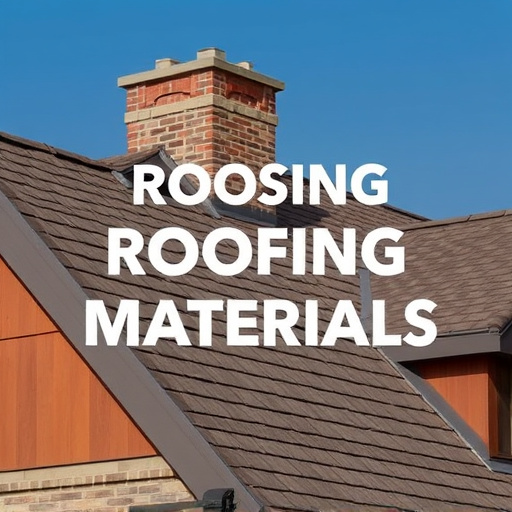Selecting the perfect roofing materials is a multifaceted decision for homeowners, balancing durability, aesthetics, and upkeep. Options range from budget-friendly asphalt shingles to premium metal roofs, each offering unique advantages. Key considerations include climate, budget, and personal taste. Homeowners should consider:
Durability: Asphalt shingles offer cost-effectiveness and longevity (up to 30 years), while metal roofs boast exceptional strength and low maintenance.
Aesthetics: Wood shakes and tiles deliver natural beauty and timeless appeal, while composite shingles blend traditional and modern looks. Clay and tile roofs exude classic elegance. Flat roofs provide a sleek, modern aesthetic with liquid membrane coatings for superior durability.
Sustainability: Green roofing incorporates vegetation for environmental benefits, while solar panels offer renewable energy generation integrated into the roof structure. Metal roofs can also be eco-friendly with reflective properties.
Maintenance: Regular inspection and prompt repair are crucial for all roofs. Some materials, like wood shakes, require more upkeep than others.
Ultimately, choosing roofing materials should enhance curb appeal while providing reliable protection against the elements, in harmony with the home's architectural style.
When it comes to protecting your home, choosing the right roofing materials is essential. This comprehensive guide explores various roofing types and styles, empowering you to make an informed decision based on durability, aesthetics, and functionality. From the common and versatile asphalt shingles to the environmentally friendly green roofing options, we delve into the pros and cons of each, helping you select the perfect fit for your home’s architecture.
- Understanding Different Roofing Materials: An Overview
- Asphalt Shingles: Common and Versatile
- Metal Roofing: Durability Meets Aesthetics
- Clay and Tile Roofs: Timeless Elegance
- Flat Roofs: Design and Functionality
- Wood Shake and Shingle Roofs: Natural Charm
- Composite Roof Shingles: A Hybrid Approach
- Green Roofing: Environmental Benefits
- Solar Panels as a Roofing Option: Harnessing Renewable Energy
- Choosing the Right Style for Your Home's Architecture
Understanding Different Roofing Materials: An Overview
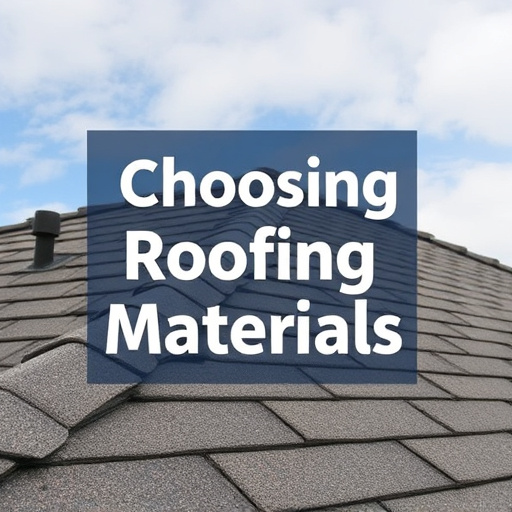
When it comes to choosing roofing materials, understanding the variety of options available is key. Different roofing types offer a range of aesthetics and functional benefits. From traditional asphalt shingles to modern metal panels, each material has its unique characteristics that influence durability, style, and maintenance requirements.
The best durable roofing options, like tile or metal, are renowned for their longevity and resistance to extreme weather conditions. They provide long-lasting roof material choices that can enhance a home’s curb appeal and increase its overall value. Conversely, materials such as wood shakes offer a charming, natural look but demand regular maintenance to prevent rot and insect damage. By evaluating factors like climate, budget, and personal preferences, homeowners can make informed decisions, ensuring their chosen roofing style not only complements their property but also serves as a robust and reliable barrier against the elements.
Asphalt Shingles: Common and Versatile

Asphalt shingles stand out as one of the most common and versatile roofing materials on the market today. They offer a wide range of traditional styles, from plain to textured, allowing homeowners to match their roof with any architectural design. This versatility makes them an attractive option for those looking to enhance their home’s curb appeal without breaking the bank. Moreover, asphalt shingles are relatively easy to install and replace, making them cost-effective in terms of both initial installation and maintenance.
When it comes to choosing roofing materials, understanding the difference between replacing vs. repairing roof damage is key. While traditional asphalt shingles can withstand various weather conditions, they may require replacement after 20-30 years. Regular inspections can help identify minor issues early on, making repairs more manageable. Additionally, with advancements in technology, solar panel roofing integration has become a viable option for homeowners looking to incorporate green energy solutions into their roofing systems.
Metal Roofing: Durability Meets Aesthetics
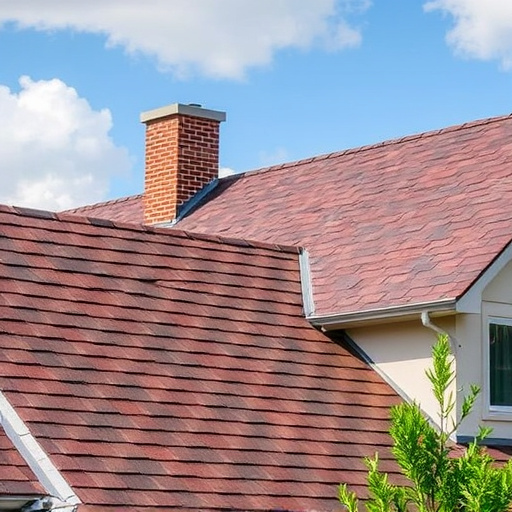
Metal roofing has emerged as a popular choice among homeowners and contractors alike, offering an unparalleled blend of durability and aesthetic appeal. One of its most significant advantages is longevity; metal panels are known to withstand extreme weather conditions, including high winds and heavy snowfall, ensuring your roof remains intact for years. This robustness also translates to reduced maintenance requirements, making it an attractive option for those seeking low-maintenance solutions.
Moreover, modern metal roofing comes in a variety of styles and finishes, allowing for creative expression and customization. From sleek, minimalist designs to intricate patterns, the possibilities are endless. Additionally, its reflective properties can contribute to heat reduction in buildings, making it an energy-efficient choice, especially in warmer climates. This eco-friendly aspect aligns with the growing trend towards green roofing options, where choosing durable materials like metal can be a responsible and stylish decision for anyone considering their roof as part of a broader sustainability strategy.
Clay and Tile Roofs: Timeless Elegance
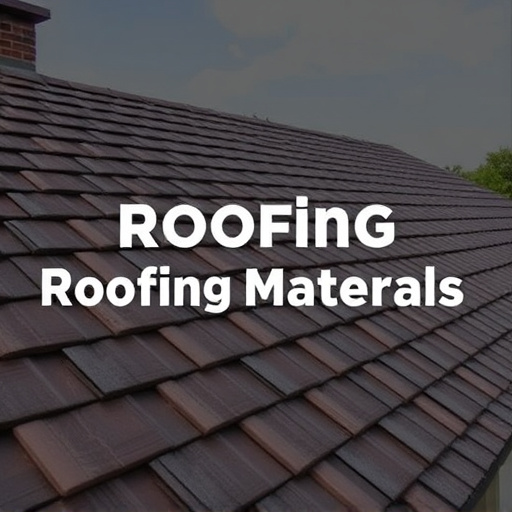
Clay and tile roofs exude a sense of timeless elegance that has captivated homeowners for centuries. These classic roofing materials offer more than just aesthetic appeal; they are renowned for their exceptional durability and longevity, making them a popular choice among those seeking long-lasting roof material choices. The process of installing clay or tile roofs involves meticulous craftsmanship, ensuring each tile is securely placed to withstand the elements.
Beyond their enduring beauty, these roofing styles provide practical benefits. Tile roofs are highly fire-resistant, offering added peace of mind and safety for residents. Moreover, they can accommodate rooftop garden systems, transforming your roof into a verdant oasis with minimal maintenance tips required. The versatility of clay and tile roofs allows them to complement various architectural styles, from traditional to contemporary homes.
Flat Roofs: Design and Functionality
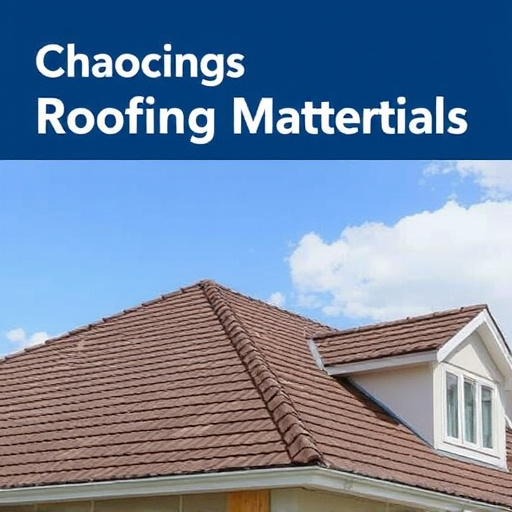
Flat roofs have long been a popular choice for both residential and commercial buildings, offering a sleek and minimalist design that complements modern architecture. When it comes to choosing roofing materials, flat roofs provide an array of options. Traditional choices include asphalt shingles or metal panels, which are cost-effective and easy to install. For a more contemporary look, homeowners can opt for liquid membrane coatings, providing superior durability and water resistance.
The functionality of a flat roof goes beyond aesthetics. These designs often incorporate slope-dependent roofing options, ensuring proper drainage and preventing water accumulation. When considering a professional roofing estimate tips, it’s essential to select the right underlayment, especially in regions prone to extreme weather conditions. Modern metal roofing designs, for instance, can withstand harsh storms and offer a long-lasting, low-maintenance solution. Local roofing material recommendations often highlight these versatile options, catering to diverse climates and personal preferences.
Wood Shake and Shingle Roofs: Natural Charm

Wood Shake and Shingle roofs bring a natural charm to any home, offering a distinctive aesthetic that’s hard to replicate with other roofing materials. Crafted from real wood, these roofs provide a warm, inviting look that seamlessly blends with traditional asphalt shingle styles while adding texture and character to the rooftop. Beyond their visual appeal, wood shake and shingle roofs offer benefits like excellent insulation, high fire resistance when using approved products, and durability against harsh weather conditions.
Choosing roofing materials is a significant decision for any homeowner, and when it comes to natural beauty and long-term performance, wood shake and shingle roofs stand out. While they may require more maintenance than some flat roof materials, the timeless styles and potential for rooftop garden systems make them an attractive option for those seeking a unique and sustainable approach to their home’s exterior.
Composite Roof Shingles: A Hybrid Approach
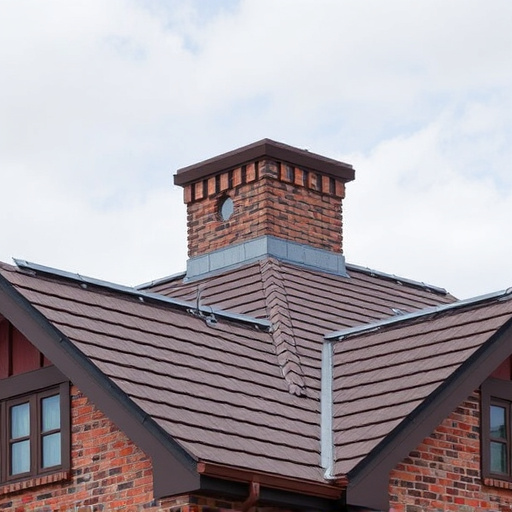
Composite roof shingles offer a unique blend of traditional and modern roofing elements, making them an appealing choice for many homeowners. These shingles are designed as a hybrid material, combining the durability of asphalt with the aesthetic appeal of ceramic or slate tiles. This innovative approach allows for a diverse range of colors and styles, providing an attractive alternative to conventional shingles.
When considering composite shingles, it’s essential to weigh their benefits against potential drawbacks. While they offer enhanced durability and low maintenance compared to asphalt shingles, they might not be as long-lasting as metal or tile roofing. Additionally, installation requires specialized skills, so enlisting the help of a professional roofing contractor is advisable. Choosing roofing materials is a significant decision, and understanding the nuances of composite shingles can contribute to a well-informed selection, ensuring your roof stands the test of time while enhancing your home’s curb appeal.
Green Roofing: Environmental Benefits

Green roofing, also known as eco-friendly or sustainable roofing, is an innovative approach that offers numerous environmental benefits when choosing roofing materials. This style involves planting a layer of vegetation on top of a building’s roof, creating a living system that reduces the impact of urban heat islands and provides insulation. By selecting green roofing options, homeowners can contribute to local ecosystems and reduce energy costs. The plants help absorb rainwater, preventing stormwater runoff and ensuring a more gradual release of water into drainage systems. This natural process also improves air quality by filtering pollutants and reducing the need for chemical fertilizers.
When considering roof types, modern metal roofing designs often incorporate green elements, allowing for efficient water management and easy maintenance. Red clay tile roofs, while aesthetically pleasing, may not offer the same environmental advantages unless installed with slope-dependent systems that facilitate proper drainage. Selecting the right roof underlayment is crucial in ensuring a durable and eco-conscious roof. Local roofing material recommendations can guide homeowners towards options that are not only sustainable but also suited to their specific climates and environments.
Solar Panels as a Roofing Option: Harnessing Renewable Energy
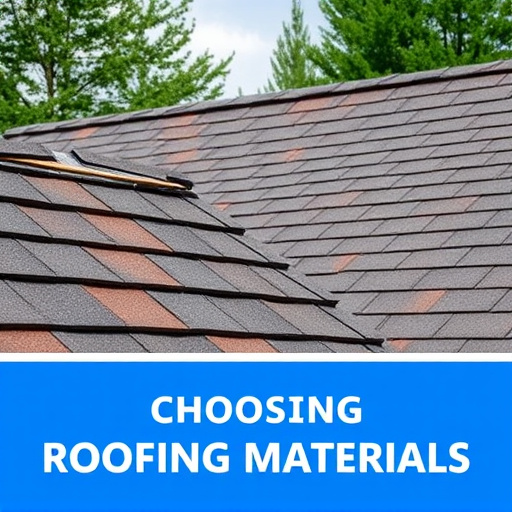
In recent years, there’s been a growing trend among homeowners to consider solar panels as an integral part of their roofing system when choosing roofing materials. This innovative approach to energy generation offers a compelling alternative to traditional power sources, making it one of the best durable roofing options available. By seamlessly integrating solar panels into your roof, you’re not just enhancing the structural integrity and aesthetic appeal of your property; you’re also harnessing the sun’s renewable energy to power your home.
This form of energy-efficient roofing solutions not only reduces utility bills but also contributes to a greener environment. While the initial setup costs for solar panels can be high, especially compared to conventional roofing materials like wood shake roofs or slate roofing, the long-term savings in energy costs make it a worthwhile investment. Moreover, with regular maintenance tips and advanced technology, solar panel roofs are becoming increasingly accessible and attractive to those seeking sustainable living solutions without compromising on style and functionality.
Choosing the Right Style for Your Home's Architecture
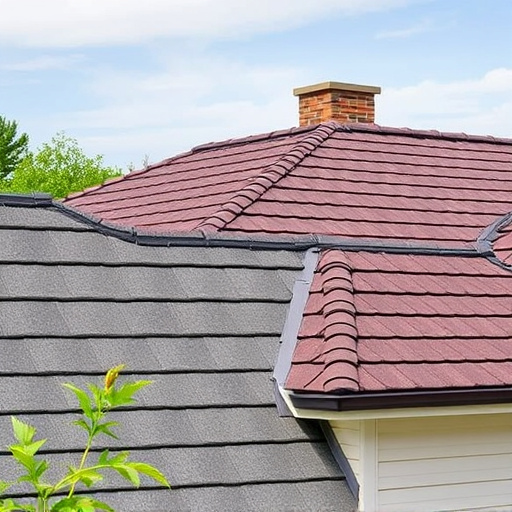
When choosing the right roofing materials for your home, it’s essential to consider not just functionality but also aesthetic harmony with your house’s architecture. The style of your home plays a significant role in selecting the most suitable roofing type. For instance, a traditional colonial or Victorian home may pair best with asphalt shingles, offering a classic and commonly available option that complements these styles. On the other hand, a modern, minimalist design could be enhanced by metal roofing, which provides a sleek and contemporary look.
For unique or historic house styles, such as bungalows or Spanish-inspired homes, consider materials that echo their distinct features. Wood shake roofs, for example, can add charm to a bungalow while requiring specific maintenance tips to manage potential rot or insect damage. Replacing or repairing roof damage promptly is crucial, whether it’s due to age or adverse weather conditions, ensuring your home maintains its house style-appropriate roofing aesthetic and structural integrity.
